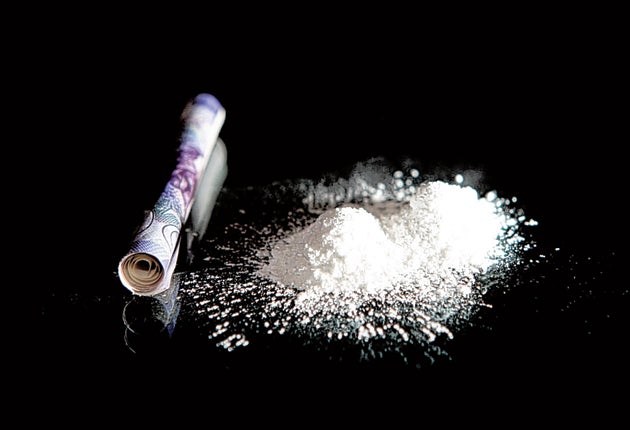Illegal drugs and prostitution boost Britain's economy by £11billion
Illegal activities have been included in estimates of household spending for the first time by the Office for National Statistics

Your support helps us to tell the story
From reproductive rights to climate change to Big Tech, The Independent is on the ground when the story is developing. Whether it's investigating the financials of Elon Musk's pro-Trump PAC or producing our latest documentary, 'The A Word', which shines a light on the American women fighting for reproductive rights, we know how important it is to parse out the facts from the messaging.
At such a critical moment in US history, we need reporters on the ground. Your donation allows us to keep sending journalists to speak to both sides of the story.
The Independent is trusted by Americans across the entire political spectrum. And unlike many other quality news outlets, we choose not to lock Americans out of our reporting and analysis with paywalls. We believe quality journalism should be available to everyone, paid for by those who can afford it.
Your support makes all the difference.Spending on illegal drugs and prostitution has boosted the UK economy by an estimated £11 billion, new figures from the Office for National Statistics (ONS) suggest.
The ONS' revised report found household spending was higher in 2012 partly because of “illegal activities”, namely narcotic drugs and prostitution.
The ONS estimated the average annual impact of the addition of illegal narcotics between 1997 and 2013, on household expenditure, is £6.7 billion per year.
Meanwhile, prostitution contributed an estimated £4.3 billion per year in current price terms.
Data previously released in May estimated that illegal drugs and prostitution contributed £10 billion to the UK economy between 1997 and 2009.
That figure was £6 billion more than the amount spent on house building within the same period.
However, this is the first time this has been officially added to figures on spending in the UK.
Britain's gross domestic product (GDP) rose 0.9 per cent in the three months from April to June this year, the fastest increase since the third quarter of 2013.
The data showed Britain rebounded from the deep 2008-09 recession earlier than thought, at least in terms of growth.
Join our commenting forum
Join thought-provoking conversations, follow other Independent readers and see their replies
Comments